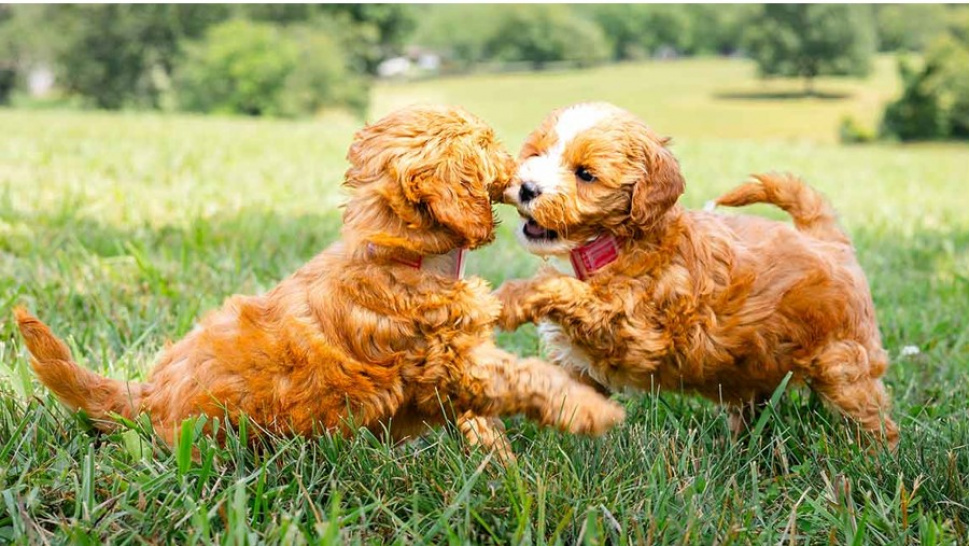Double Doodles are bundles of joy. As a mix between Labradoodles and Goldendoodles, they bring together intelligence, affection, and high energy in one fluffy package. But like any smart and sensitive breed, they need proper socialization to thrive. Without it, even the most lovable Double Doodle can develop fear, anxiety, or overexcitement that makes daily life harder—for both them and you.
Getting socialization right early on sets the foundation for a confident, well-adjusted dog who handles new environments and experiences with ease.
Understanding the Double Doodle Personality
Double Doodles tend to be outgoing, playful, and people-oriented. But each one is different. Some are born confident and curious, while others may be more hesitant in new situations. Because they come from two intelligent and active parent breeds, they pick up on behaviors quickly—both good and bad. That’s why early and positive social experiences are so important.
Early Socialization Tips for Puppies
The ideal time to start socializing your Double Doodle is between 3 and 14 weeks of age. During this stage, puppies are naturally more open to new things. Start with short, gentle exposures to different sights, sounds, and surfaces. Let your puppy walk on grass, carpet, wood, or tile. Play recorded city sounds at low volume. Give them positive reinforcement like treats and praise during each new experience.
Handling exercises are just as important. Gently touch their ears, paws, tail, and teeth. This helps prepare them for grooming and vet visits later on. A pup who’s used to being touched is far less likely to freak out during a nail trim or check-up.
Introducing to New People and Environments
You don’t need a crowded party to help your Double Doodle meet new people. One-on-one introductions are actually better at first. Invite friends of different ages and appearances. Let your dog observe from a distance before encouraging direct interaction. Always reward calm, friendly behavior.
As your pup gains confidence, start taking them on small outings. A walk around a busy block, a trip to a pet-friendly store, or a drive-through car wash gives them valuable exposure to the outside world. The goal isn’t just to meet people, but to get comfortable with changing environments and routines.
Socializing with Other Dogs and Pets
Social time with other dogs is essential, but it needs to be managed carefully. Enroll in a well-run puppy socialization class or arrange playdates with vaccinated, well-mannered dogs. Watch closely to make sure play doesn’t get too rough or intimidating. If your pup looks scared or overwhelmed, take a break and try again later.
If you have other pets at home, introduce them slowly. Keep initial meetings short and supervised. Allow both animals to have their own space and never force interaction. With time and patience, most Double Doodles can get along well with other animals.
Addressing Fear or Shyness
If your Double Doodle seems nervous around certain people or situations, don’t push. Let them observe from a safe distance and give them time. Use treats, toys, or gentle praise to create positive associations. If your dog growls or hides, don’t punish them—fear won’t go away with scolding. Instead, work slowly to rebuild trust and confidence.
Continued Socialization for Adult Double Doodles
Socialization doesn’t stop when your pup turns one. Dogs continue learning throughout their lives. Keep introducing new experiences, whether that’s a road trip, a hike, or meeting your friends’ kids. Try new activities like agility classes, scent games, or group walks to keep your dog mentally sharp and socially confident.
Common Mistakes to Avoid
A few common mistakes can hold your Double Doodle back. Skipping early socialization is one. So is flooding them with too much too soon. It’s also easy to accidentally reinforce anxious behavior by reacting strongly to your dog’s fear. Instead, keep things low-stress, reward progress, and move at your dog’s pace.
Conclusion
Socializing your Double Doodle is one of the best investments you can make in their happiness and well-being. A well-socialized dog is easier to train, more relaxed in new settings, and less likely to develop behavior problems. It’s a long game, but one that pays off every day.
Need more tips, tools, or gear to help with training and socialization? We suggest visiting All About The Doodles. They offer a range of helpful resources specifically for Doodle breeds, and they really understand what these dogs need to become their best selves.



Share the News